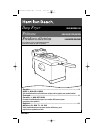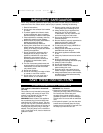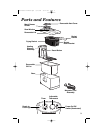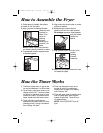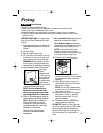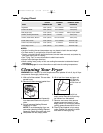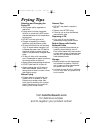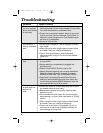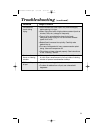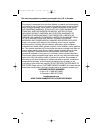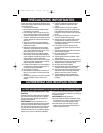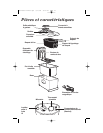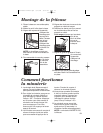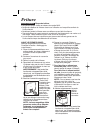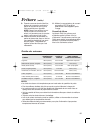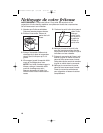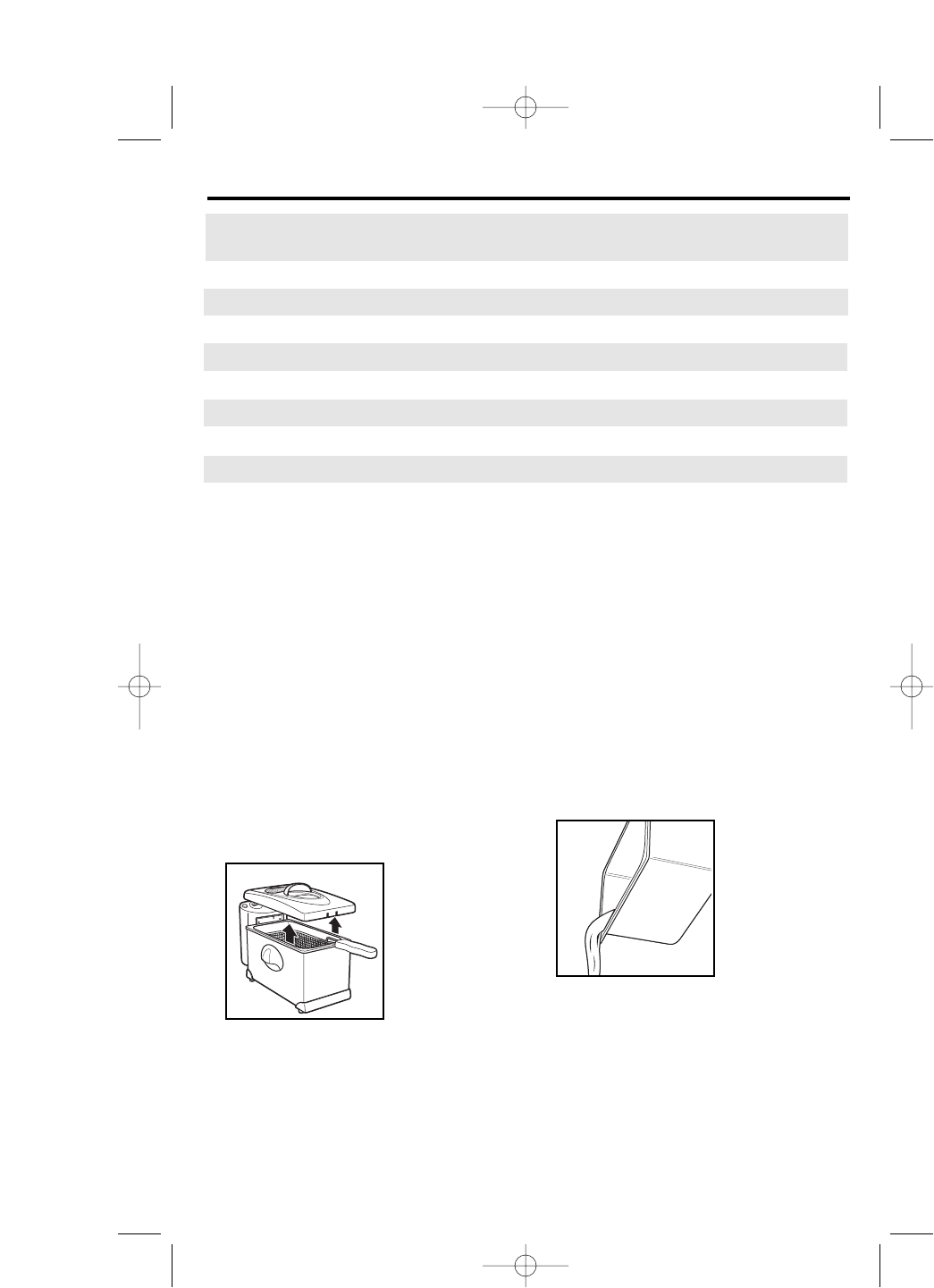
6
Cleaning Your Fryer
WARNING! Burn Hazard. To avoid eruptions and/or splatter of hot oil, dry all fryer
components thoroughly before using.
1. Wait until oil has cooled. This can take
several hours.
2. Remove lid then remove basket from
fryer.
3. Remove Heating Element Assembly
from base and hook onto oil pot to
drain.
4. Do not immerse Heating Element
Assembly in water.
NOTE: To avoid damaging fryer, use
care when cleaning Heating Element
Assembly. Gently wipe with soft cloth
dampened with hot, soapy water.
5. Lift oil pot from base and pour out
oil. Wipe all
excess oil or
oil film from oil
pot.
6. Clean base and oil pot with hot,
soapy water. Base and oil pot may
be washed in a dishwasher.
7. Remove vent cover then remove
grease screen and wash it in hot,
soapy water. Dry thoroughly before
putting grease screen back into lid.
8. Clean lid and basket in hot, soapy
water. Position lid vertically to drain
and allow to thoroughly dry.
Frying Chart
FRYING COOKING INTERNAL TEMP/
FOOD TEMPERATURE TIME DONENESS
Vegetables 350ºF (180ºC) 2 to 3 minutes Tender crisp
Frozen Fish Sticks 350ºF (180ºC) 2 to 3 minutes 145ºF (63ºC)
Beef (single layer) 375ºF (190ºC) 3 to 5 minutes 160ºF (71ºC) for medium
Chicken, Frozen (precooked) 375ºF (190ºC) 4 minutes 165ºF (73ºC)
Chicken, Fresh Pieces, Bone-In 375ºF (190ºC) 18 to 20 minutes 165ºF (73ºC)
French Fries, Frozen 375ºF (190ºC) 3 to 5 minutes Brown & Crisp
French Fries, Fresh (single layer) 375ºF (190ºC) 15 minutes Brown & Crisp
Onion Rings, Frozen 375ºF (190ºC) 5 to 7 minutes Brown & Crisp
NOTES:
• Length of cooking time and temperature may vary based on batch size and weight.
• For best results, fry a single layer of food for each batch.
• Frozen, uncooked chicken should be thawed, excess water removed, and patted dry
with paper towel prior to cooking.
• See “Frying Tips” for more information to obtain best results.
• Always follow package directions.
• When cooking meat, poultry or fish, use cooking thermometer to determine internal
temperatures.
• Visit foodsafety.gov for more information on safe internal cooking temperatures.
840150301 ENv04.qxd 3/11/08 3:12 PM Page 6



